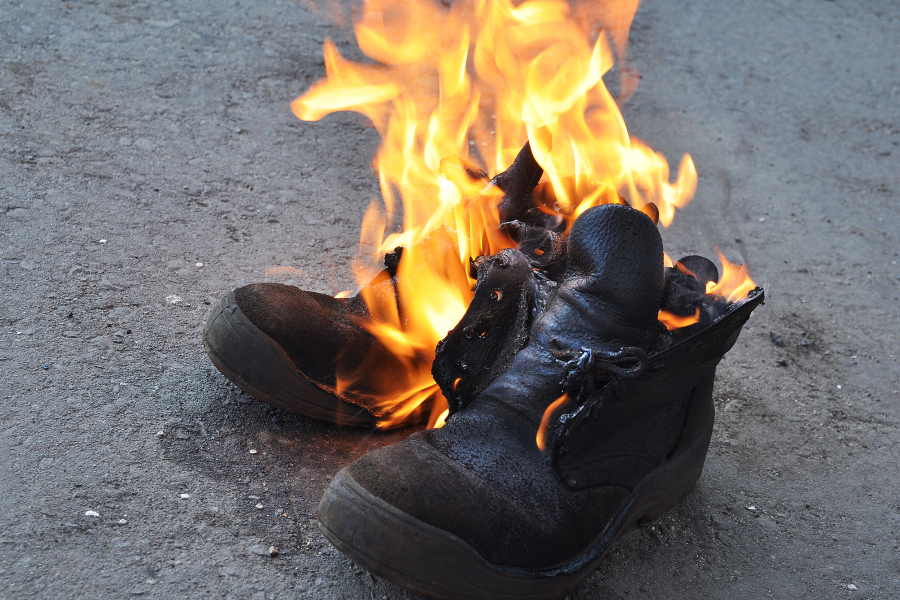
Even though just about every workplace in the U.S. has strict safety regulations in place, employees continue to suffer burn injuries on a regular basis. More than 5,000 people have to go to the hospital every year because they’ve been burned while on the job. This type of injury not only leads to excruciating pain, it can also make a victim unable to work for an extended period of time.
Workers’ compensation is designed to help provide a steady stream of income for employees who have been incapacitated due to a workplace injury. But there are times where people might be able to take legal action in order to obtain full compensation for their suffering. If you’ve suffered a burn injury on the job, an attorney with the McEwen Law Firm may be able to help.
Our firm has years of experience representing people injured in workplace accidents. We will do everything we can to make sure you have the money you need to take care of all of your expenses while you recover. Get in touch with us as soon as you can for a free consultation. You can call (800) 732-3070 or use our online contact form.
Causes of Burns in Different Industries
Burns are an everyday risk in just about every type of industry you can imagine. The three main types are chemical, electrical and thermal burns. Here’s a quick look at each.
- Chemical burns – These occur when the victim’s soft tissues (ears, lungs, skin, ears, etc.) come into contact with a corrosive, synthetic substance. Examples include thinning and/or alkylating agents, oxidizers, solvents and acids.
- Electrical burns – Whenever someone comes into contact with an electrical current (either AC or DC), a horrible burn can be the result. It could happen after accidentally touching a live wire or electrical socket. Or even after being hit by a bolt of lightning.
- Thermal burns – Also known as a “heat burn,” this happens when hot liquids, flames or steam hit the skin. Common causes include touching objects such as tools, engines, pipes and motors.
Lasting Issues Associated with Burns
All of these types of burns can result in the need for extensive, painful treatment that could, in some cases, last for years. The following is a look at the different categories of burns, as well as the potential impacts.
- First-degree burn. A first-degree burn is considered to be minor, but it can still be painful. It affects the epidermis, the outermost layer of the skin.
- Second-degree burn. This kind of burn affects the epidermis as well as the second skin layer, known as the dermis. In addition to severe discomfort and extreme redness, a second-degree burn can also result in some scarring.
- Third-degree burn. A third-degree burn extends deeper into the body, reaching the fatty layer that lies under the dermis. This kind of burn can be so severe that it can cause severe nerve damage. It can also make the skin almost like leather, or leave it with a waxy appearance.
- Fourth-degree burn. This is an incredibly severe burn that penetrates not only all of the layers of skin, but also ligaments, tendons, muscles and even bones. As you might expect, a fourth-degree burn can be fatal.
Can You Sue Your Workplace?
One of the main purposes of workers’ compensation is to protect employers from legal action. So, in most instances, you won’t be able to file a lawsuit against your employer.
There are exceptions, however. There are some cases where an employer commits gross negligence, maintaining a workplace that is so unsafe that a severe accident is almost certain to take place. Employers will sometimes intentionally injure a worker. The victim will very likely be able to sue in these instances. If the company fails to have workers’ comp insurance, the victim could file a lawsuit.
But there are possibly other parties that contributed to the accident that led to the injury, and the victim could take action against them. For example, a third party could have manufactured a defective piece of machinery that failed, or an at-fault driver could have caused an accident while you were driving on company time.
Steps to Take if You’re Burned at Work
The earlier you act if you’ve been burned, the better off you will be – not only physically, but also financially.
- The first thing to remember is not to try and “tough it out.” Get whatever medical help you need, and get it quickly. You might not think you’ve been hurt that badly. But some burns, such as electrical burns, can lead to severe internal damage. Even if you have a so-called “minor” burn, that could result in an infection if you don’t get it treated quickly.
- Next, make sure you report your injury to your employer. There’s a pretty good chance a supervisor saw the accident and already knows you’re hurt. But if that’s not the case, they need to know as fast as possible. You only have a certain amount of time for your injury to be reported. If you don’t meet the deadline, you might not be able to file for workers’ comp. Tell a friend or family member to notify your employer if you had to immediately go to the hospital.
- The last step will be to file your workers’ compensation claim. You should receive all of the paperwork needed to do so. However, we recommend that you contact a personal injury attorney before filling out the documentation if you’ve suffered a serious injury. There’s a chance you might be able to file a lawsuit if you were hurt due to an accident caused by your employer’s gross negligence. If you accept workers’ comp, you might not have the option to do so.
Contact McEwen Law Firm ASAP to Discuss Your Options
The experts with McEwen Law Firm have a long track record of helping workers obtain full and fair compensation for their burn injuries. We may be able to do the same for you. If you would like a free review of your case, please contact us online or call (800) 732-3070.



